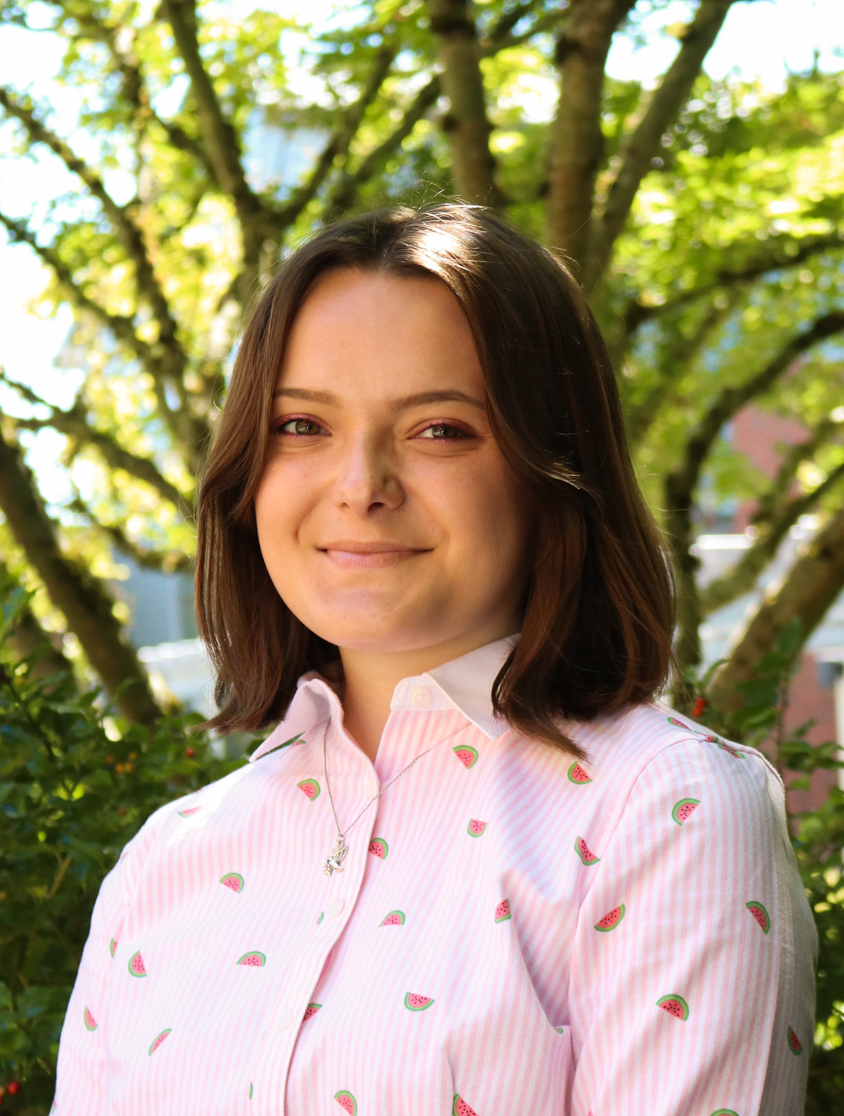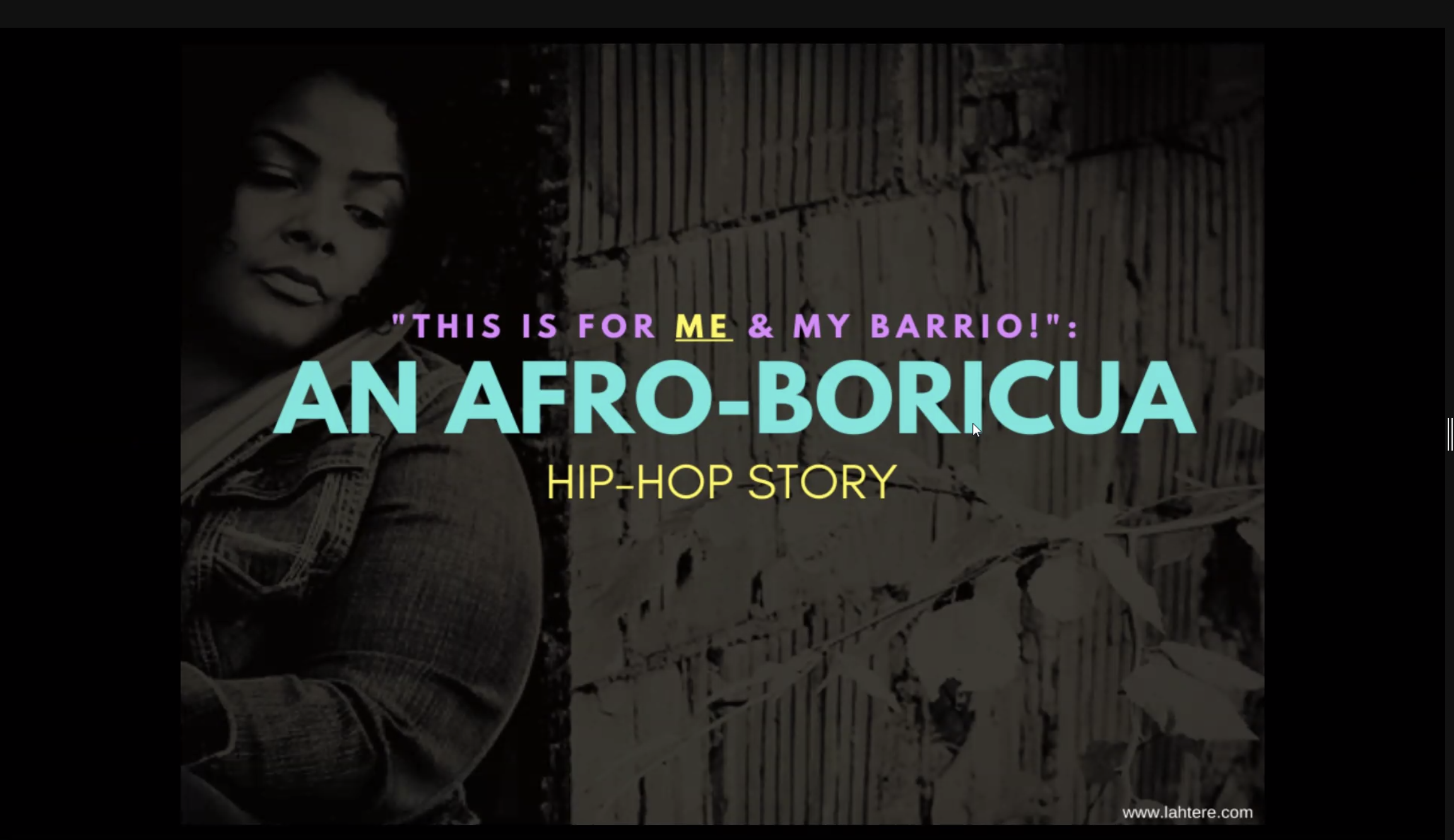Among becoming a celebrated Afro-Antillean and Puerto Rican songstress, humanitarian and global activist, Teresita ‘Lah Tere’ Ayala emphasizes the truth that everyone has a story to tell. With the power of hip-hop, Ayala uses her musical talents to uplift communities, while inspiring others to implement hip-hop as a tool of self-expression and healing. During an event to commemorate Women’s History Month, the Cultural Arts and Equity Hip-Hop Series hosted Ayala to share her life story with WSU Vancouver.

On March 12, students, staff and faculty gathered over Zoom to listen in on Ayala’s presentation. Growing up in Chicago’s Boricua community in Humboldt Park, Ayala’s parents immigrated to Chicago in the ‘60s and ‘70s, to become educators and encourage bilingual education within the Chicago public school system. Ayala addressed the traumatic struggles that her parents had experienced when immigrating and living in Chicago, where they had set their roots to start a new life in America.
“It was like a culture shock. Even though they came into a Puerto Rican community, they were still in Chicago, which is one of the most segregated cities in the world. Trying to find their place, somehow they found each other, fell in love and so here I am, the first generation born in the United States of America,” Ayala said.
At the age of 16, Ayala began performing in a salsa band at her school where she used music to make friends through traditional Puerto Rican culture. Singing and engaging with music was an outlet for her, and a way to avoid, which Ayala explained, a dangerous time in Chicago where gang violence was affecting several communities within the city.
“It’s powerful to experience myself and be able to look back and see what was happening, and remember some of the craziest stories that were going on in my head while I’m over here performing, and trying to use music as an outlet. Music was the healing that was happening [for me], that I didn’t even know, and I’m so thankful,” Ayala said. “It was a crazy war zone, the gangs were on fire all the time. I lost 14 of my friends to gun and gang violence, so you imagine sitting in your classroom, and the next day your classmate is gone. … Luckily, because I was the daughter of teachers, they forced me to be involved in school activities and leadership. But, there were my other classmates that didn’t have anywhere to go because they were going back home to really terrible situations.”
Despite dealing with complications of homelessness and addiction within her family, after graduating high school Ayala was accepted into the University of Illinois. Although she ended up not finishing college to help her family back home, Ayala found a much different path toward success. While becoming a union organizer in the state of New York, Ayala gathered together with friends in New York City to then start a political hip-hop group called Rebel Diaz in 2006.
“Everything was political, everything was about justice for people. So, I started a hip-hop group around human rights and immigration rights [called] Rebel Diaz. … I was trying to make the soundtrack for the movements happening in 2005 and 2006, then we started an arts collective in the [South Bronx],” Ayala said. “That lasted a while, but then I started to not like the hip-hop group I was in. I started really understanding what it was like to be an independent woman and hip-hop was still very misogynistic in its own ways. … So, I started Momma’s Hip-Hop Kitchen, which is an all-women’s hip-hop showcase in the South Bronx.”

Working toward creating a safe space for women, Ayala said Momma’s Hip-Hop Kitchen became a sensation. During her experience working for the organization, Ayala continued to travel around the world to help children discover their passion for music and learn about hip-hop as a form of self-healing.
“I became this global citizen, and my heart really opens up to things outside of just being Puerto Rican. I was this person, a human being, and other people were experiencing injustices just like me,” Ayala said.
After 20 years of activism, Ayala experienced burnout, and began to practice the concepts of self-justice and self-advocacy. She began asking herself tough questions, and realized an important lesson: to become an advocate for yourself.
“I was too busy being an advocate for everybody else but myself. It’s taken me 10 years now to be in this space to talk about my truth in this way. Decolonizing and rewiring, it’s about acknowledging your pain, your hurt, your trauma, honoring your pace while you’re doing it. … Make sure you let people know, ‘I’m going to tell my story, nobody else can tell this story that I just told you, nobody else can tell it,’” Ayala said.
Today, Ayala lives by her mantra of “I am who I’ve been waiting for.” She chooses to be her authentic self, and shares her story with others around the world. By having a sense of self-advocacy and self-justice, the storyteller hopes to share her narrative while inspiring others to do the same.
“I don’t know all of your stories, but I hope to be able to hear them too, because they matter,” Ayala said.

Olivia is a senior studying English at WSU Vancouver.
